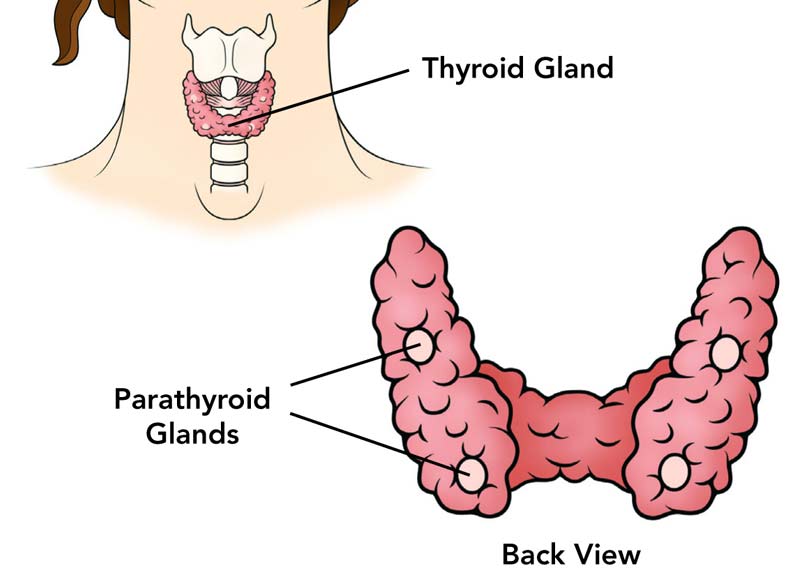What is Hyperparathyroidism?
Hyperparathyroidism is one of the parathyroid disorders where the parathyroid gland makes more of the PTH than it needs, causing an imbalance in the amount of calcium in the body. This can lead to problems with the bones, muscles, nervous system, and kidneys. Hyperparathyroidism is caused by inappropriately increased secretion of parathyroid hormone (PTH). If the parathyroid glands secrete too much hormone (PTH), the balance is disrupted and the blood calcium level rises. This condition of excessive calcium in the blood, called hypercalcaemia, is the first sign that something may be wrong with the parathyroid glands.
Parathyroid Disorders
Primary Hyperparathyroidism
In primary hyperparathyroidism, increased secretion of PTH occurs because one or more of the glands have become enlarged. The enlarged parathyroid glands continue to produce large amounts of PTH without regard to the level of calcium in the blood.
In more than 90% of the cases the cause is enlargement of one gland, called a parathyroid adenoma. In approximately 5-10% of cases there are abnormalities in more than one gland. Sometimes this is because two or three glands are enlarged (multiple adenomas), and at others times it’s because all four glands are abnormal, called parathyroid hyperplasia. Treatment for all of these conditions is surgery.
Seconary and Tertiary Hyperparathyroidism
Secondary hyperparathyroidism happens as a consequence of low vitamin D levels, either due to kidney failure or dietary deficiency. All four glands increase their activity and secrete more PTH so as to increase the vitamin D levels. The treatment of secondary hyperparathyroidism is to correct the chemical imbalance. If untreated, over time all of the parathyroid glands start to work independently without being controlled by the level of calcium in the blood (this is called tertiary hyperparathyroidism). The PTH levels continually rise and cause problems. Treatment for tertiary hyperparathyroidism is surgery.
Parathyroid Cancer
Parathyroid cancer is very rare, and most parathyroid tumors are benign. Generally, on their laboratory exam, patients with parathyroid cancer will have an extremely high PTH level. Less than one percent of people with hyperparathyroidism are diagnosed with a malignant parathyroid tumor.
If you have any questions about thyroid or parathyroid surgery, you should speak to your local doctor, who will arrange to contact your thyroid surgeon.

